Handfasting is an ancient marriage ritual that is becoming increasingly popular with modern couples. The ceremony involves a couple’s hands being placed together and bound with ribbon or cord. This symbolises their joining through marriage, and the ritual is often performed at celebrant led services.
Still unconvinced by the ritual? Read on to learn more about this pagan inspired marriage ceremony.

Where does it come from?
Handfasting is so old that its origins can’t be certain. It’s been a tradition for many thousands of years and has been traced back to Celtic and Druid ceremonies. It may even be where the phrases ‘tying the knot’ and ‘bound for life’ originate. In Scotland, a piece of tartan was traditionally used for the handfasting, although it was often used to signify betrothal rather than marriage itself. Handfasting has become popular with couples looking for a more intimate and personalised celebration.
Click here to find out more on wedding traditions.
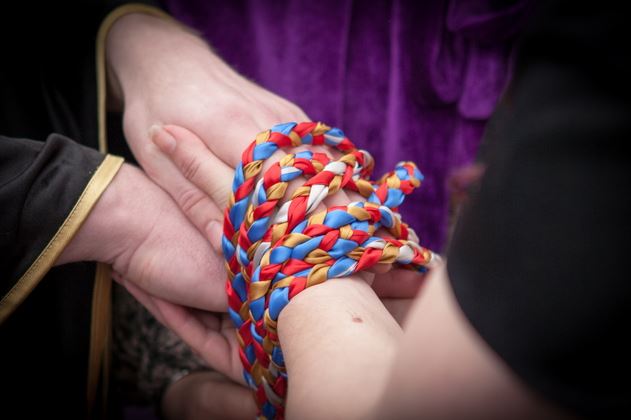
What does it involve?
The marrying couple hold hands so that the wrists or pulse points are touching. A length of ribbon or cord is then looped around their hands. In some ceremonies, the ribbon is looped 6 times and the couple make a vow or declaration at each loop. The final tie is normally done fairly loosely so that the couple can keep the knotted ribbon as a special symbol of their marriage. The ribbon itself is often made up of two pieces of material to represent the couple, or different coloured strands that represent important parts of their relationship.
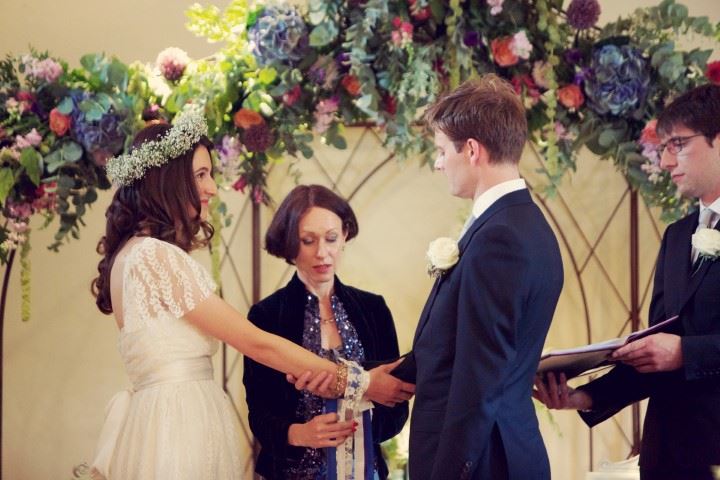
Is it legal?
Handfasting is completely legal to carry out, however the ceremony itself is not be recognised as a legal wedding in the UK. Civil ceremonies are required by law to have no religious content at all (even down to readings and poems) so you can’t carry out a handfasting at your civil service. A few very understanding registrars may allow you to complete a handfasting in a separate room, entirely apart from the legal service. Church of England weddings include a moment where the priest’s stole is wrapped around the hands of the couple, but churches generally won’t allow a handfasting service in full.
The easiest way to enjoy a handfasting ritual and a legally recognised marriage is to have a small civil ceremony. This should be separate from a humanist or celebrant-led service which includes a handfasting. The smallest civil ceremony can be performed with just two witnesses and reasonably cheaply at your local registry office. The handfasting ceremony won’t be the legally binding bit, but it will give you a huge amount of flexibility on what you can include in your ‘real’ wedding.
In Scotland, humanist ceremonies have legal status and therefore it is much easier to include handfasting alongside your legal service.
Who can perform a handfasting ritual?
Anyone can perform a handfasting ritual as it is not a legal ceremony. This means a friend or loved one could conduct the service on the day. Often a celebrant will be asked to perform the handfasting alongside a wider service. A celebrant is likely to have done similar rituals countless times before and will be able to discuss with you the best way to tailor the handfasting to you as a couple. Handfasting has no specific religious connections and is performed by couples with varied religious and atheist beliefs
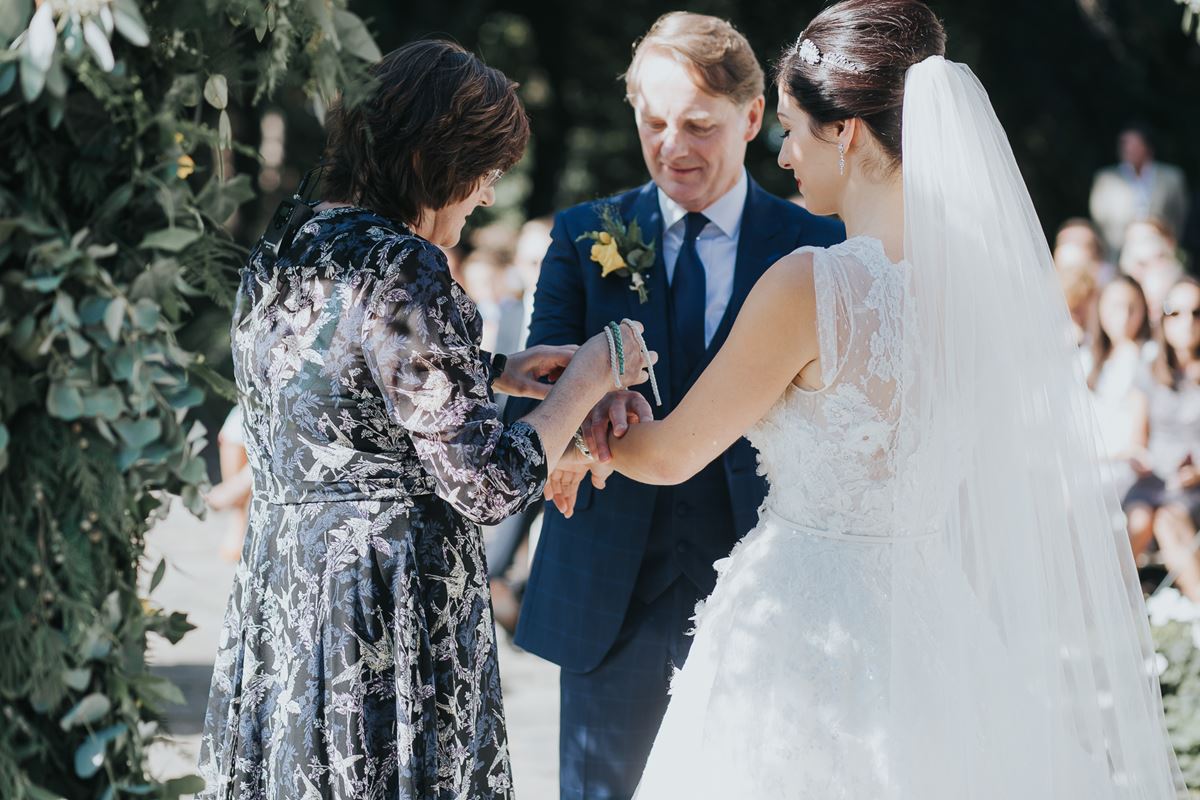
Is handfasting offensive?
Some couples worry that by choosing a handfasting service (based on pagan rituals) they will somehow offend their religious or more traditional guests. This is very unlikely. Handfasting is an inclusive and emotional ritual which is often the most memorable part of the wedding day. Your wedding day is about you, do what makes you happy and if that includes handfasting, go for it!
Why should I choose a handfasting ceremony?
Many couples feel the traditional marriage service is too restrictive or just doesn’t reflect who they are as a couple. Handfasting is a way to very visibly acknowledge your connection and add a truly intimate element into your wedding day. Others like to acknowledge an ancient tradition that has been performed by couples as far as anyone can remember.
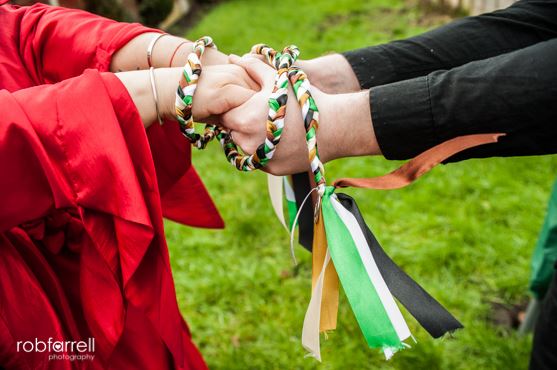
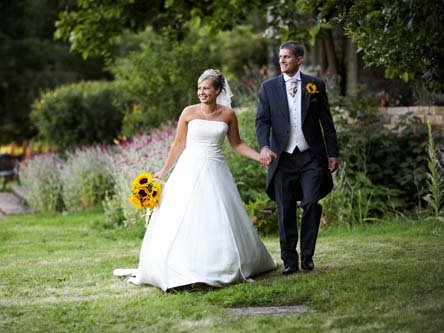



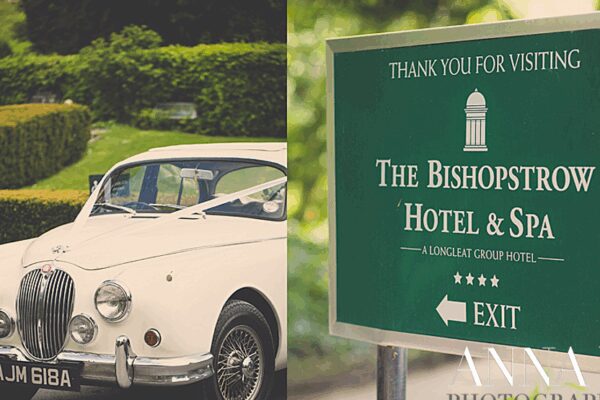
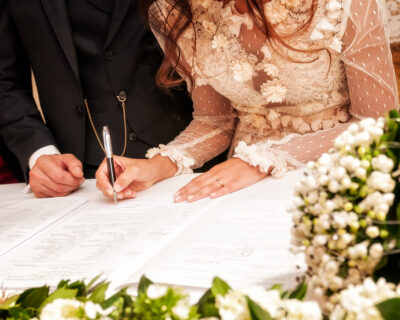 Changing names after marriage – all you need to know!
Changing names after marriage – all you need to know!  Expert Advice for Couples Who Have a Wedding Scheduled During COVID-19
Expert Advice for Couples Who Have a Wedding Scheduled During COVID-19 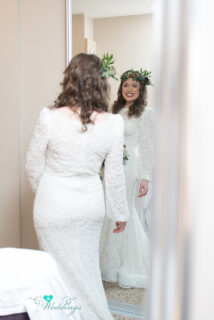 10 tips for buying or selling a pre-loved dress
10 tips for buying or selling a pre-loved dress  Wedding hacks that will save your day!
Wedding hacks that will save your day!